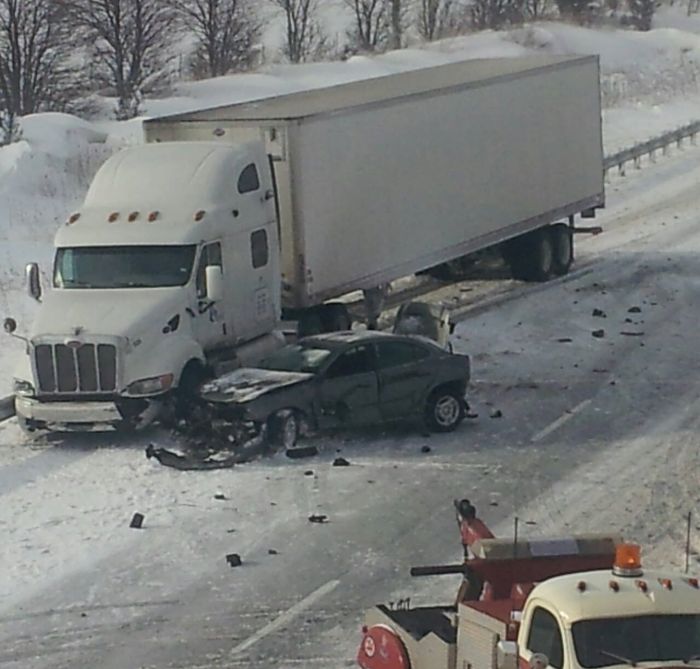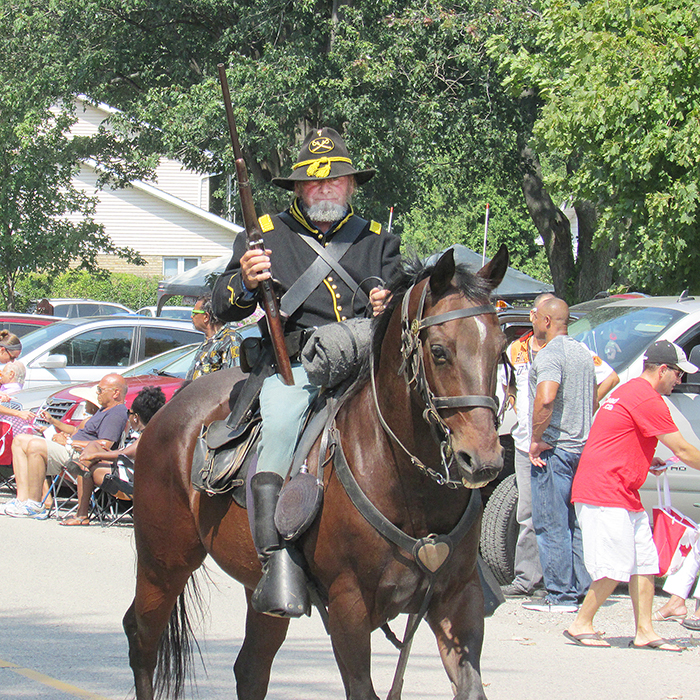
Carnage Alley will get its concrete barriers – eventually.
That’s the word from the provincial minister of transportation.
Kathryn McGarry said the Wynne government would erect concrete barriers along a 117-kilometre stretch of Highway 401 through Chatham-Kent and Elgin County that currently has no barriers of any kind.
This stretch of road has been the unfortunate home to many an accident, some of which have been fatalities.
For many folks, including Rondeau resident and #BuildtheBarrier champion Alysson Storey, it can’t come quickly enough.
Storey – who lost her friend Sarah Payne, 42, who died with her daughter, Freya, 5, this summer in a head-on collision on Highway 401 west of London – said the lack of a barrier along that stretch of highway has led to numerous head-on crashes, as vehicles come through the centre median and cross into oncoming traffic.
Storey, and others, want to see a concrete barrier put in place between Tilbury and just outside of London to protect drivers and their passengers from such a potential tragedy.
But even though McGarry said the barriers are coming, the concrete safety improvements are at least two years away.
“We will be building a concrete barrier. However, before we do so, we need to do the necessary planning work, which includes an Environmental Assessment to widen this stretch of Highway 401,” she said.
According to previously published reports, ministry officials expect it to take about two years to update an environmental assessment done nine years ago for expanding the 401 in Chatham-Kent to six lanes, with the addition of a concrete barrier. Meanwhile, no such assessment has taken place for the 401 in Elgin County, and officials estimate it will take three years to be completed there.
In the interim, the province said it would erect cable barriers to help improve safety along this stretch of the 401.
Storey said that’s a start.
“Cables are a good interim solution, but not a permanent solution. They won’t stop transports,” she said.
At first, the province suggested cable barriers would provide all the safety needed, and would be the permanent solution along Carnage Alley. But continued grassroots support for #BuildtheBarrier, complete with town hall meetings and even a trip to Queen’s Park, sparked a change of heart.
In short, the province blinked.
Storey is heartened to see the hard work pay off.
“Overall, it’s positive. It’s bittersweet because the grief for everyone is still very fresh,” she said. “We’re not even six months from this horrific collision that changed all our lives.
“But they have heard us and they are making some positive changes. Now it’s our job to make sure they stick to their promise. At least it will help prevent it from happening in the future.”
The next stage, Storey said, is to ensure the province starts the process moving as soon as possible.
“The timeline is the next part of the journey. We need to pin them down on time and make sure they stick to it,” she said.
Storey wants to see the safety measures leap to the top of the priority list in terms of highway construction this coming summer.
“I am pleased this decision has been made now. Construction season, when it begins in 2018, this should be the first thing on their project list,” she said.
She added #BuildtheBarrier will continue to monitor progress.
“If they think we’re going away, they will learn that we are not going anywhere.
We’re very committed to this cause,” she said. “If there is any indication they are going back on their promise, we will hold them to account very publicly and very loudly.”
Rick Nicholls, MPP for Chatham-Kent Essex, said the concrete barriers are badly needed, but would like to see the province take things a step further and work to widen the highway.
“The number of fatal accidents including cross-overs are only going to increase as transport traffic continues to climb,” Nicholls said.
He added that with the completion date of the new Gordie Howe Bridge joining Windsor and Detroit being 2022, the government should begin now to expand the number of lanes to six from four and to build the concrete barrier.
“Why wait until the bridge is built before construction on widening the 117 km stretch of highway including a concrete barrier is started? This 401 highway project is going to take many years to complete and with congested transport and vehicle traffic increasing every year, more lives will be put at risk,” he said. “Hundreds of thousands of people travel this corridor every year. Safety must be a priority.”
Recent winter conditions served as a reminder the barriers are needed,” Storey added.
“There have been fatalities along the whole stretch. On a recent Monday alone, there were 22 collisions along the 401 in Chatham-Kent, with a lot of it focused on the bend near Tilbury,” she said. “This is still a dangerous section.”






